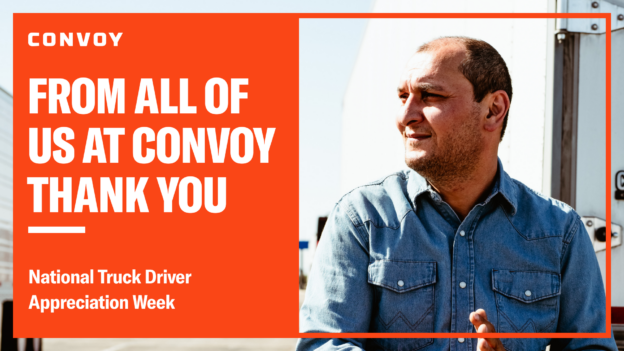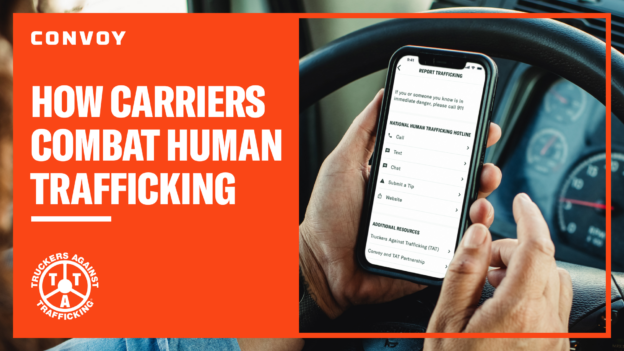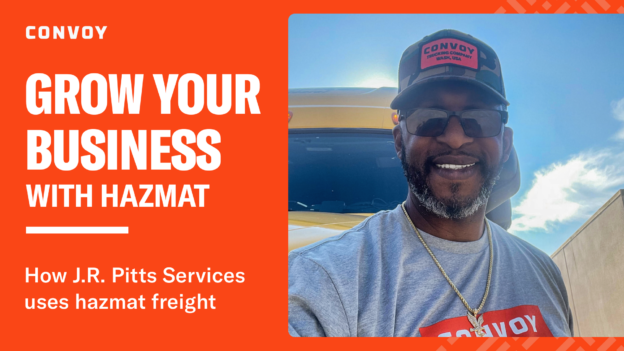Convoy Veteran Heroes: An oral history
Carriers • Published on November 12, 2019
Today we thank and recognize the servicemen and women nationwide for all they do to keep our country safe. Convoy has around 30 veterans working in all parts of the company in both our Atlanta and Seattle offices. Nine veterans, with more than 80 years of combined military service, answered our questions about their transition into the civilian sector. Together, these heroes have created a group, Convoy Commanders, to help recruit, aid, and support veterans transitioning out of the military and into the transportation sector.
Meet our Convoy Commanders
Russell Bowers served for three years in the US Army as a combat engineering officer, and two years in the project management & logistics department. After his service, he joined Convoy as an Account Manager for commercial shippers. He partners with transportation managers and supply chain directors to help service their freight needs.
Jason Carter has been in the US Army for 12 years as a second lieutenant and continues to serve on reserve duty. Jason is the Director of Convoy’s Atlanta office. He leads a team of over one hundred employees across all operational departments.
Nick Fink served for five years as a Lieutenant in the Field Artillery within the US Army before coming to Convoy to work as a Senior Operational Specialist. Nick works closely with our customers and carriers to resolve in-transit problems.
Josh Hansen served as a lieutenant in the transportation corps of the US Army for 12 years. He joined Convoy as a Senior Operational Manager. Josh leads his team to create a flawless carrier and customer experience for in-transit problem resolution.
Brandon Kinne served as a captain in the US Army for five years before becoming a manager on Convoy’s operational team. Brandon focuses on leading his team to improve in-transit problem resolution and app usage on every Convoy shipment.
Diankha Linear served for 16 years in the US Army as a logistics and transportation officer, Aide-de-Camp and trial lawyer in JAG. Diankha now serves as Convoy’s General Counsel and has been crucial in developing our corporate legal team in Seattle.
Lorin Seeks served in the US Army transportation corps for nine years. He now leads the Quality and Compliance team at Convoy. As one of Convoys’ first employees, Lorin has been instrumental in helping our customers mitigate risk and reduce variability within Convoy’s network of trucks.
Matt Wartenbe served for 11 ½ years in the Marines, first as a Sergeant in the Infantry and then as a Human Intelligence Officer. At Convoy, Matt leads a team of program managers on the carrier side of the marketplace. He aims to improve the carrier experience and enable them to earn more by improving network efficiencies.
Matthew Werner served for seven years in the US Army as a quartermaster officer. Matt now works on Convoy’s account management team and manages multiple accounts in the retail sector.
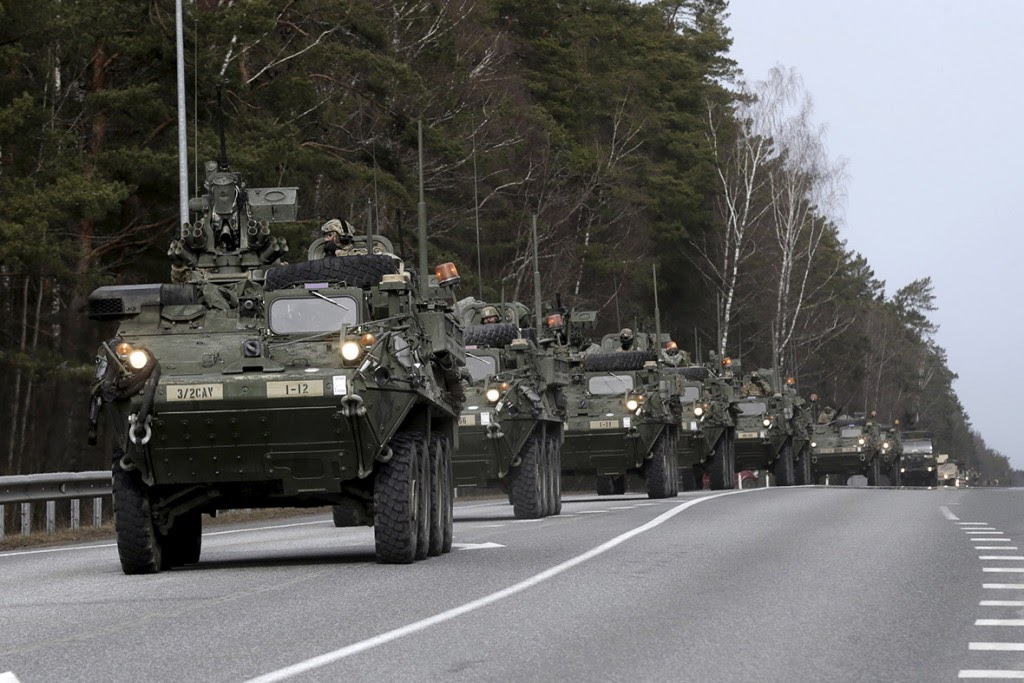
What benefits did your military experience provide in your civilian career?
Russell: “My first deployment was to the NATO base in Iraq. I was placed as the only U.S. officer and saw my commander once during the six-month deployment. I was stationed with my platoon, 200 Spaniards, 100 Portuguese, and 100 British soldiers. Looking back, I don’t think I would have gotten this experience at any other job… working with so many people with different backgrounds, languages, experiences, etc.”
Jason: “Veterans tend to bring two very distinct things to a team, leadership and dealing with stress. There’s a certain amount of stress you learn to deal with when you’re deployed in Afghanistan during route clearance and worried about getting your men home. This high-stress tolerance allows us to remain focussed on larger issues and reduce future errors.”
Diankha: “I was the first lawyer at Convoy and learned about the business from the ground up when the team was a lot smaller. I often joke that I didn’t come to Convoy to be a lawyer; I came to be a leader. We have a famous saying, “mission first, people always.” My service helped me develop resilience, discipline, strategy, and grit.”
Brandon: “The military helped me jump in quickly on Convoy’s operational team because I felt that I could relate to the challenging environments and situations our drivers deal with on a day to day basis.”
Lorin: “I’m grateful for my time in the military because it’s what gave me my career direction. When I was in college I had no clue what I wanted to do, but very early on in my service I identified my passion for logistics and transportation and decided that’s what I wanted to do for the rest of my career.”
Matt: “The military does very well in developing the ability to set clear goals and communicate those goals to everyone multiple levels down. That training has aided in my time as a program manager because I am responsible for setting, communicating, and ensuring our company goals are understood and executed.”
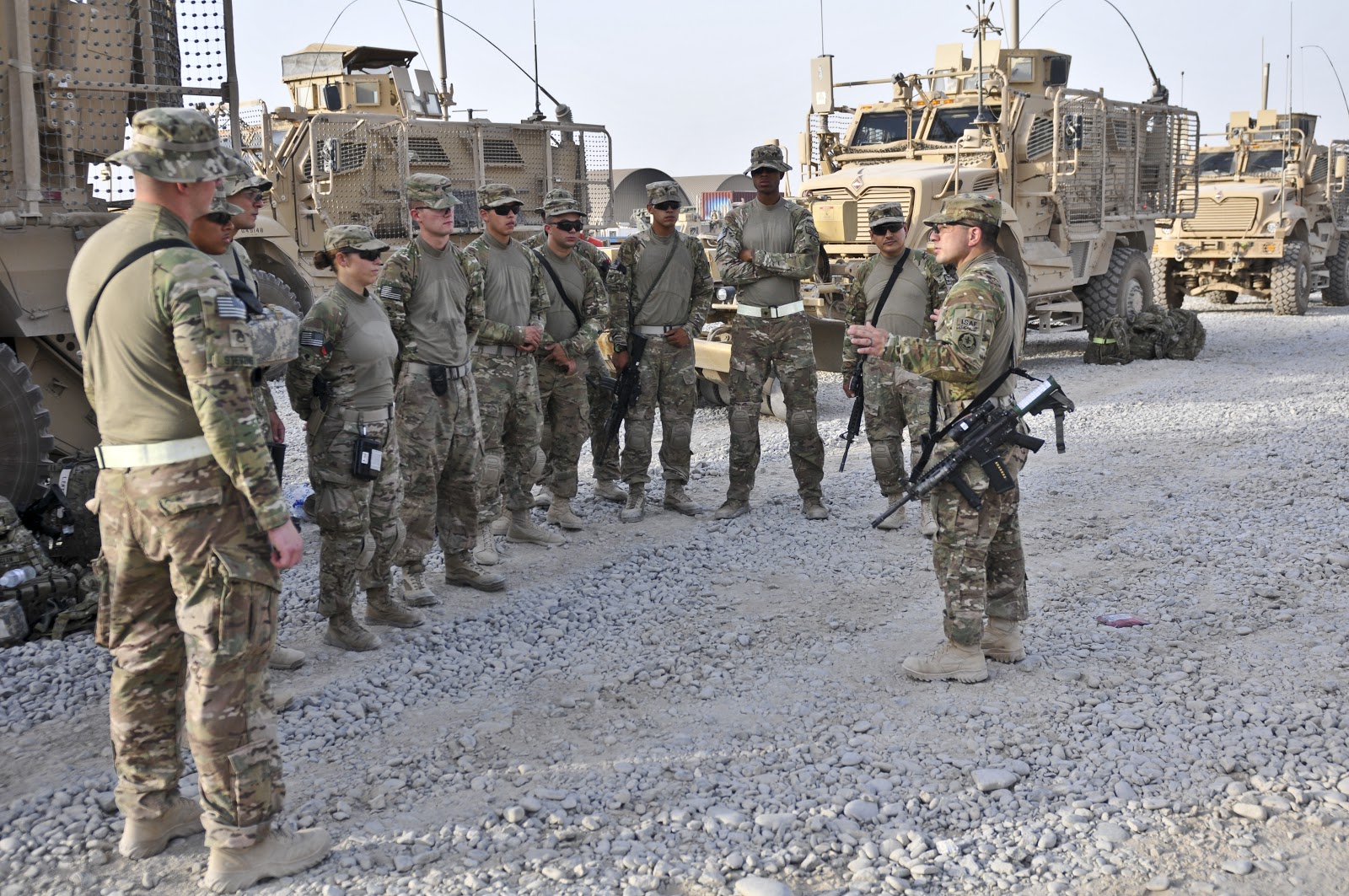
What value does the Convoy Commander group bring?
Brandon: “After joining Convoy, my first thought was how I could help give other veterans struggling to find their next mission a great experience and a place to go. The core of the Convoy Commander group is helping veterans find a great match at Convoy. We also share our expertise as a group with the rest of the company because the more we can share, the more perspective and understanding future teams will have.”
Nick: “The Convoy Commanders are prioritizing hands-on experience with veterans in the field. For example, over the summer, we took a group of convoy employees to join the 13th Combat Support Sustainment Battalion at Joint Base Lewis McChord and learned how their operational departments monitored transfers..”
Matthew: “One of the most important parts of our group is educating the company on how to recruit veterans, who they should target, and how we can increase our veteran numbers at Convoy.”
Russell: “Convoy was my first job in the civilian sector. What I respect most about the Convoy Commander group is the ability to quickly find your cohort and connect on relatable experiences, stories, and backgrounds.”
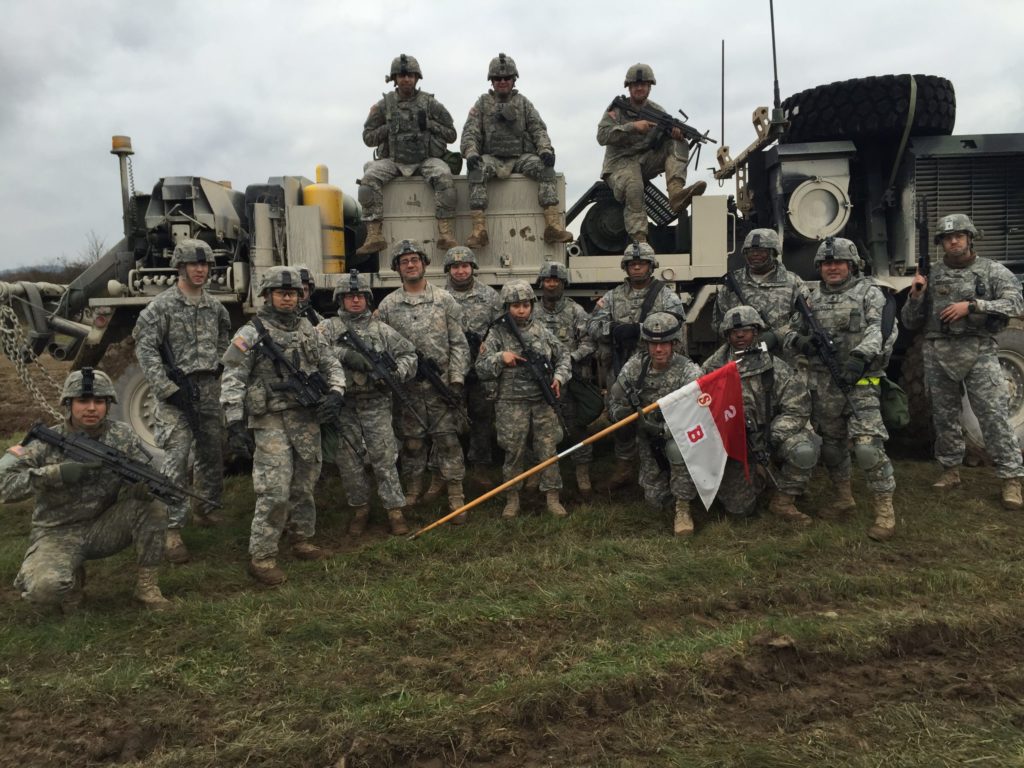
What advice would you give to a veteran looking for their next move in the civilian sector?
Russel: “If you get an opportunity to work in the civilian sector, you should work as hard as you can. Ultimately, you are developing a reputation for the next guy that is transitioning out of the service. You have a duty to work as hard as you can to create a path for future veterans.”
Jason: “Do the research and make sure it aligns with what you want to do in that next chapter of your career. You should be comfortable with passing up on the first couple of career opportunities. I took a role with the company that I had no idea what they wanted me to do and later found out it was a terrible fit for me. You have to make sure that what you do in your civilian career has the fundamentals that line up the leadership and work style you need.”
Matt: “Veterans try to put a lot of time into translating their military resume into civilian language that can be understood by a recruiter. However a lot of times they do it in a way where neither a veteran nor the recruiter understands the resume because they’ve tried to translate it too much. It’s no longer recognizable by anyone.”
Josh: “Don’t be afraid to reach out and ask for help. The military has a lot of A-type personalities where humility tends to be a shortcoming. Transitioning out of the military into a successful civilian career cannot and should not be done alone. Reach out and ask for help. There are countless organizations and people out there willing to help. A successful transition is incumbent upon the veteran relying on their network.”
Matthew “People in the military have done a lot of cool things and fail to highlight them on their resume. Those stories are often what gets you in the room and gives you a chance to further explain your experience. Don’t discount how interesting your background is.”
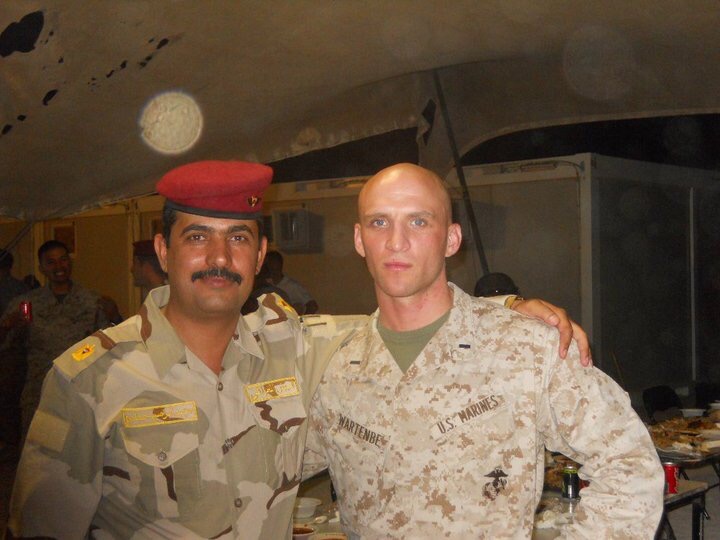
What distinct traits do veterans carriers have still serving our country on the highways?
Nick: “Veteran carriers tend to be the ones who problem solve on their own prior to escalating issues to the operational teams at Convoy. They are very good at communicating a problem and if they do run into an issue, they are usually the ones who have a solution they can recommend.”
Lorin: “I hope we can bring more veteran carriers into our network, especially if they come from prior military transportation experience. Typically you see these carriers have a higher level of training under more difficult circumstances. They tend to engage in proactive preventative maintenance, train their drivers, maintain their logs, conduct audits, and overall know how to run a great trucking business.”

